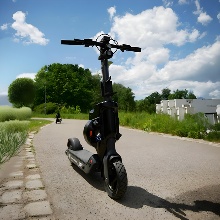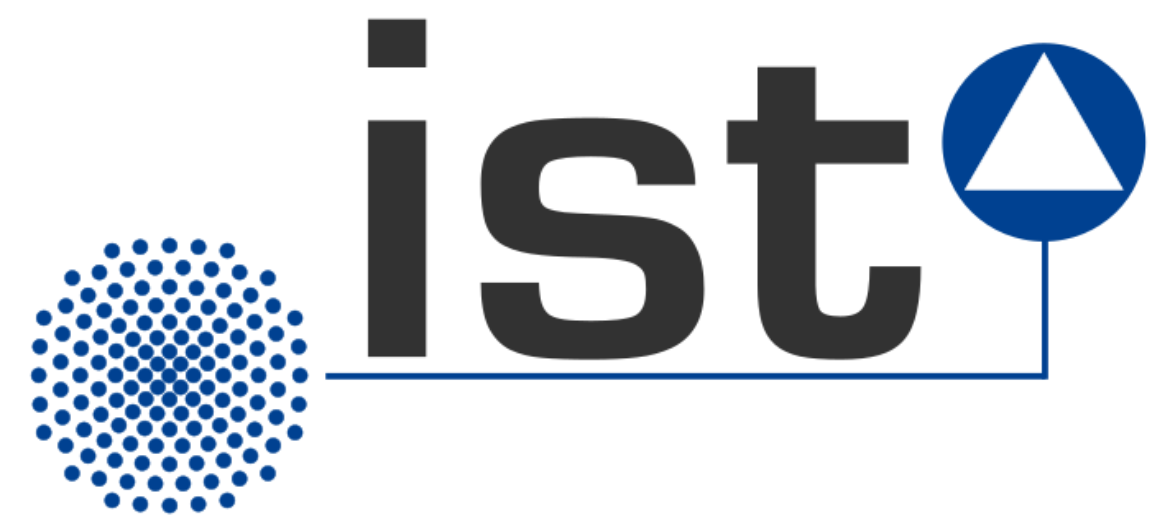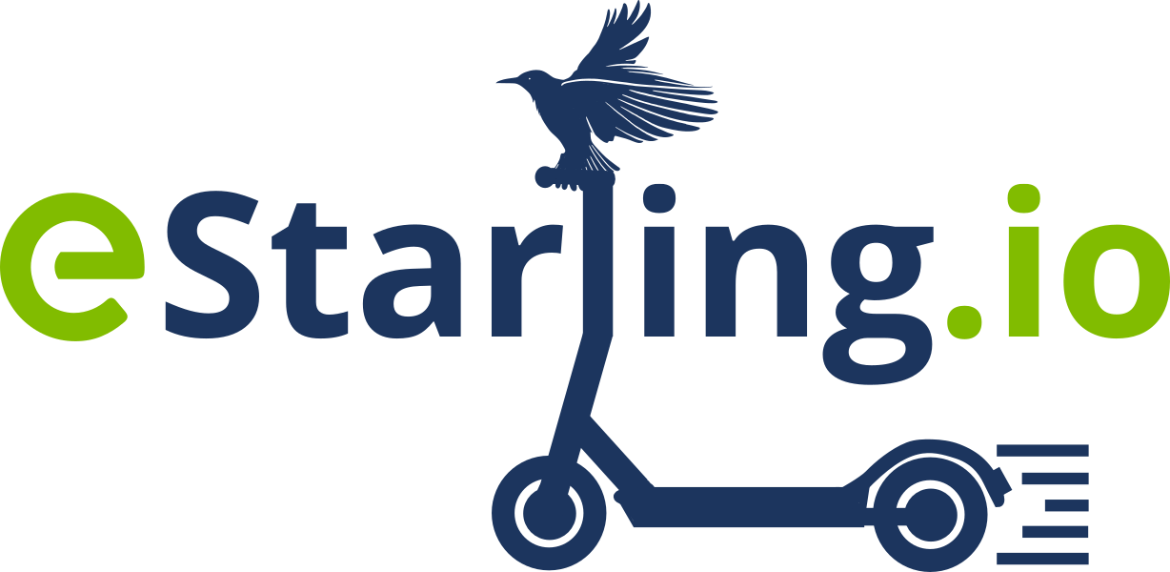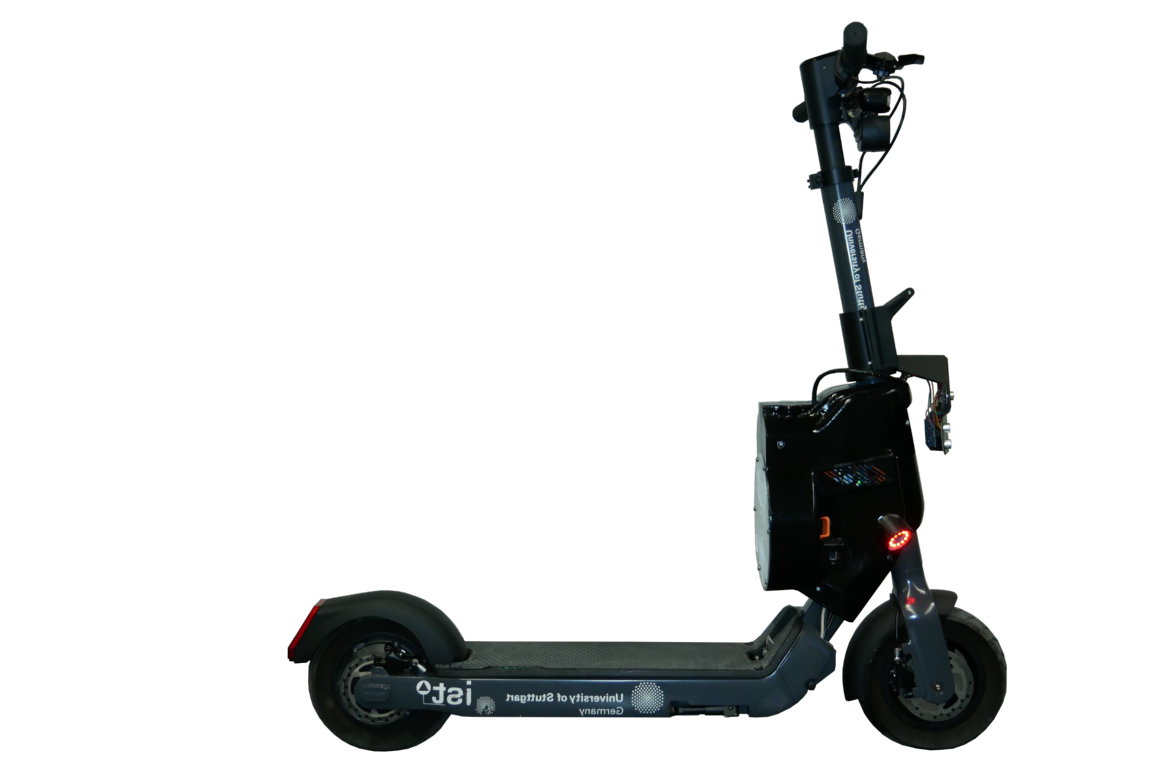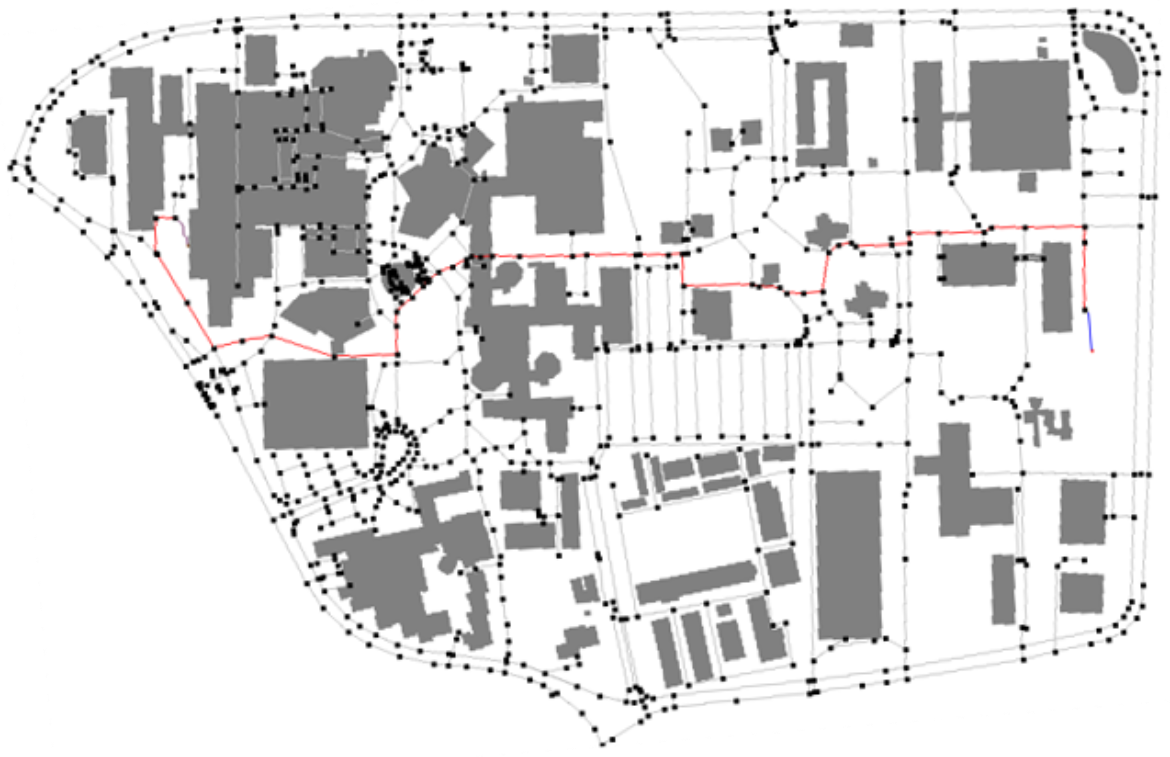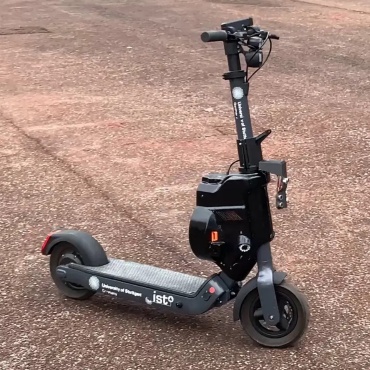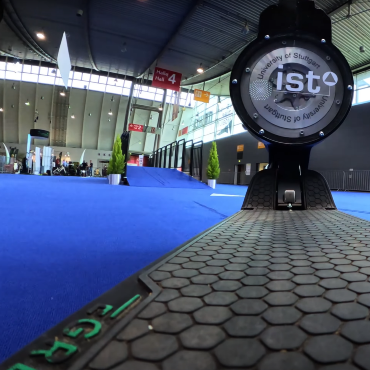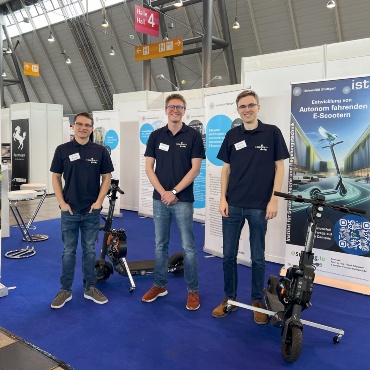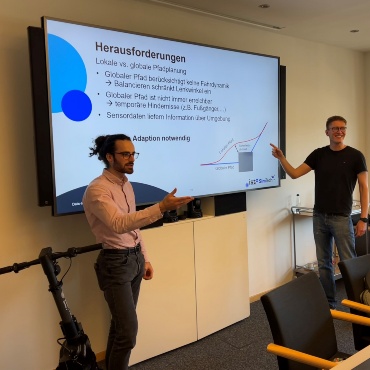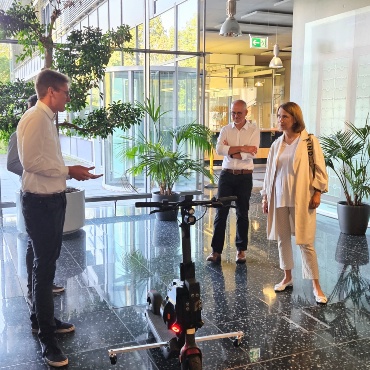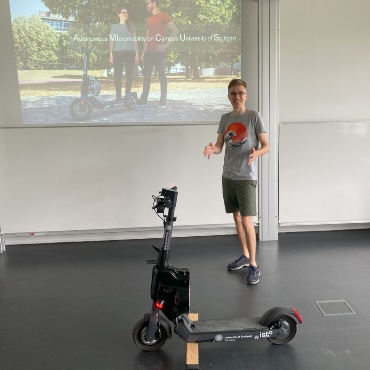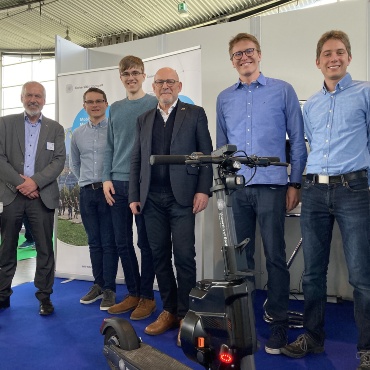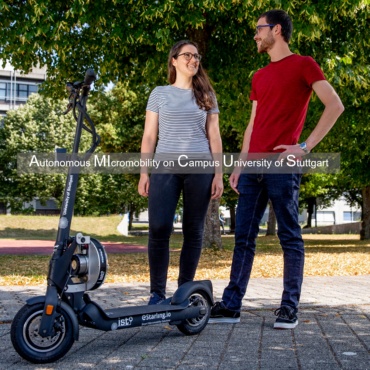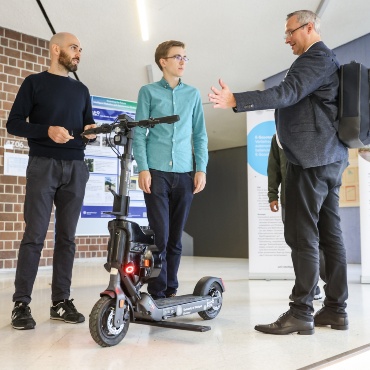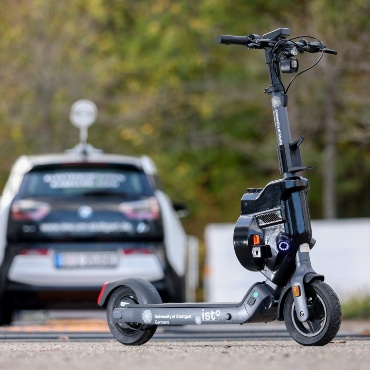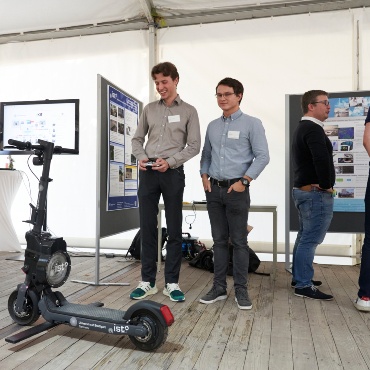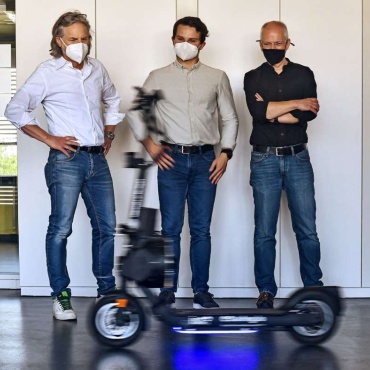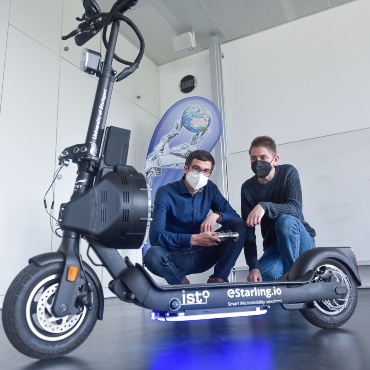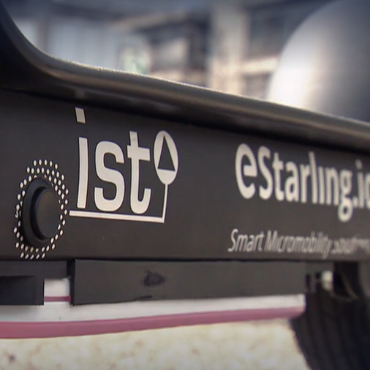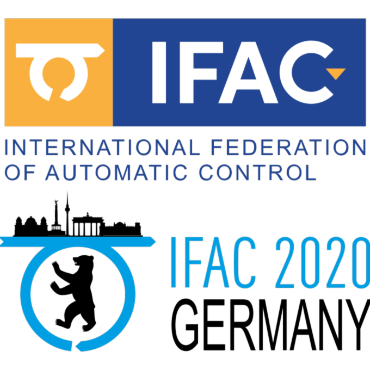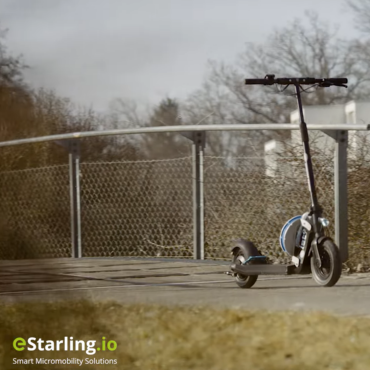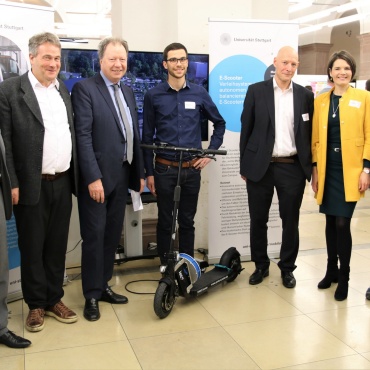Project eStarling.io
Development of a research prototype of a self-stabilizing and autonomously driving e-scooter, including navigation, environment recognition, and distribution on campus.
Intelligent distribution and efficient route planning
Machine learning is used to optimize distribution on campus based on user requests. A special distribution algorithm ensures efficient route planning for the e-scooters. One autonomous e-scooter can replace up to ten conventional e-scooters in a rental system.
Reduction of CO2 emissions
Compared to a conventional rental e-scooter, the CO2 emissions of an autonomous rental e-scooter are significantly reduced. Instead of the 6 000 standard e-scooters that would be needed to supply the Vaihingen campus, a fleet would only have to comprise around 600 autonomous e-scooters. By autonomously searching for the inductive charging station, the CO2-intensive, manual collection of the vehicles by so-called “juicers” and their vehicles is no longer necessary.
We work together in a great team of student assistants and research assistants.
We are constantly looking for motivated student assistants who like to help us in this interesting project. If you are interested, feel free to approach us.
Publications
- Strässer, R., Seidel, M., Brändle, F., Meister, D., Soloperto, R., Hambach Ferrer, D., & Allgöwer, F. (2024). Collision Avoidance Safety Filter for an Autonomous E-Scooter using Ultrasonic Sensors. Accepted for Presentation at the 17th IFAC Symposium on Control in Transportation Systems (CTS 2024), Preprint: Arxiv:2403.15116.
- Soloperto, R., Wenzelburger, P., Meister, D., Scheuble, D., Breidohr, V. S. M., & Allgöwer, F. (2021). A control framework for autonomous e-scooters. Proc. 16th IFAC Symposium on Control in Transportation Systems (CTS), 252–258. https://doi.org/10.1016/j.ifacol.2021.06.030
- Wenzelburger, P., & Allgöwer, F. (2020). A first step towards an autonomously driving E-Scooter. Demonstrator Session 21st IFAC World Congress. https://www.ist.uni-stuttgart.de/institute/team/pdf/PW/IFAC20_E-Scooter.pdf
News on the autonomous e-scooter
[Photos: Universität Stuttgart/ IST, Universität Stuttgart/ SimTech, Scooterhelden, Universität Stuttgart/ IST]
Autonomous E-Scooter in 2023
[Photos: Universität Stuttgart/ IST, Universität Stuttgart, Universität Stuttgart/ IST, Universität Stuttgart/ IST, Universität Stuttgart/ School For Talents, Universität Stuttgart/ IST, Universität Stuttgart, Universität Stuttgart/ IST]
Autonomous E-Scooter in 2022
[Photos: Universität Stuttgart/ Uli Regenscheit, Universität Stuttgart/ Uli Regenscheit, KIT/AServ, Universität Stuttgart/ IST, Lichtgut/Max Kovalenko, Universität Stuttgart/ IST]


